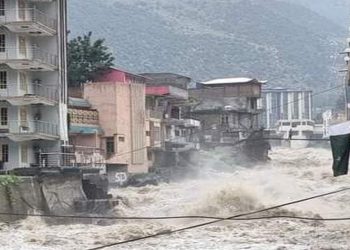International Air Transport Association (IATA) on Wednesday said Pakistan is among the top markets where airline funds have been blocked from repatriation.
In a press release, the trade association of world’s airlines said that Pakistan has blocked $225 million of airline funds from repatriation. Nigeria has blocked $551 million, while Venezuela has to settle $3.8 billion of airline funds that have been blocked from repatriation since 2016.
It’s worth mentioning that the IATA represents some 300 airlines comprising 83% of global air traffic.
As per IATA, Pakistan is among the top five nations in the world that have blocked airline funds (excluding Venezuela).
Bangladesh, Lebanon, and Algeria are other countries on the list; they have each blocked $208 million, $144 million, and $140 million, respectively. The aviation organization disclosed that more than 27 nations and territories prohibit the return of airline funds.
IATA issued a warning that in the previous six months, the amount of airline funds for repatriation that have been blocked by governments increased by more than 25% ($394 million).
“Total funds blocked now tally at close to $2 billion,” informed IATA, which called on governments to remove all barriers to airlines repatriating their revenues from ticket sales and other activities, in line with international agreements and treaty obligations.
“Preventing airlines from repatriating funds may appear to be an easy way to shore up depleted treasuries, but ultimately the local economy will pay a high price. No business can sustain providing service if they cannot get paid and this is no different for airlines,” Willie Walsh, IATA’s Director General, was quoted as saying in the press release.
The development occurs as Pakistan’s foreign exchange reserves, which are now held by the central bank at a low level of less than $8 billion, are diminishing.
Pakistan is now in negotiations with multilateral allies and foreign lenders for infusions to support its foreign exchange reserves. The country’s currency has already suffered due to a decline in reserves; this year alone, its value has fallen by over 21%.

































